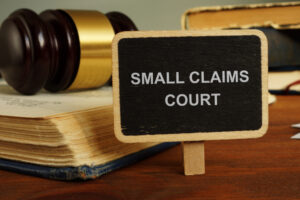What Does a Court Clerk Do: Behind the Scenes of Justice
If you picture a courtroom, you might imagine lawyers whispering to their clients behind heavy oak desks or black-robed judges with a gavel in hand. While judges and attorneys get a lot of screen time in courtroom dramas, many people work behind the scenes for a court of law to function.
what is a court clerk
In the labyrinthine world of the legal system, there are many unsung heroes, diligently working behind the scenes to ensure that justice is served efficiently and effectively. One such crucial figure in the legal realm is the Clerk of Court. This article will delve into the role and responsibilities of a Clerk of Court, shedding light on their essential functions, their pivotal position in the judicial system, and how they contribute to the seamless functioning of the courts.
Understanding the Basics
Who is a Clerk of Court?
At its core, a Clerk of Court is a vital administrative officer within the court system, responsible for maintaining records, managing cases, and facilitating the court’s day-to-day operations. They serve as the right hand to judges and magistrates, ensuring that the wheels of justice keep turning.
The Unsung Heroes of Court Administration
Court administration, the management of a court’s non-judicial functions, requires knowledgeable and dedicated staff. These administrative roles are not often in the forefront of our imagination, but are a keystone in the US judicial system.
“These are good careers,” says Karen Mitchell, the clerk of courts for the Northern District of Texas. And with an aging population of current administrators, Mitchell says the field is in need of younger people stepping in.
A Historical Role: The Clerk of Courts
The role of the clerk of courts was created by the first US congress in the Judiciary Act of 1789. The Judiciary Act outlined three non-judge positions in each judicial district—the clerk of court, United States Marshal, and United States attorney. The federal judiciary has changed over time, but as Mitchell states, “it was intended from the beginning that there was a person in each federal court who would manage non-judicial parts of the court.”
The Vital Functions of Court Clerks
In order for a court to uphold justice, paperwork needs to be processed, resources managed, and courtrooms maintained. This slightly less glamorous side of the justice system can offer equally engaging, stable, and valuable careers.
Where Do Court Clerks Work?
Court clerks work both in the state and federal court systems. At the state level, court clerks often have different roles depending on the unique guidelines put forth by the state. Like judgeships, leadership positions are often elected offices.
In the federal system, such as the position held by Mitchell, the role of the clerk of court is fairly standardized and hired by the court rather than elected by the public. The demands on the office of the clerk of courts vary depending on the size of each district and its case load. Mitchell requires a staff of 115 to manage a large district with 7 courthouses covering an area of 96,000 square miles. Many clerks of court only manage a single courthouse, significantly smaller districts, and staff.
Each court clerk position presents unique and dynamic requirements; however, the essential principle of an office overseeing the function and maintenance of the court remains the same.
What Does a Court Clerk Do? Common Job Duties
Record Keeping and Document Management
One of the primary duties of a Clerk of Court is to maintain an accurate and comprehensive record of all court proceedings. This includes managing case files, transcripts, and various legal documents.
Case Management
Efficient case management is the backbone of any functional court system. Clerks play a pivotal role in docketing cases, scheduling hearings, and ensuring that cases progress smoothly through the legal pipeline.
Jury Selection and Administration
In cases that require a jury, Clerks are responsible for the selection and administration of jurors. This process involves summoning potential jurors, conducting voir dire, and managing juror compensation.
: Courtroom Support
During court sessions, Clerks are often present in the courtroom, providing support to judges, attorneys, and litigants. They swear in witnesses, mark exhibits, and maintain order during proceedings.
Financial Management
Clerks also oversee the financial aspects of the court, including collecting fines, fees, and court costs. They ensure that all financial transactions are accurately recorded and deposited.
The Qualities of a Proficient Clerk
Attention to Detail
Given the importance of record-keeping in the legal system, a Clerk of Court must possess an impeccable attention to detail. Even the smallest oversight can have significant consequences in a legal case.
Organizational Skills
The sheer volume of documents and cases that flow through a court demands exceptional organizational skills. Clerks must be able to manage multiple tasks efficiently.
Discretion and Ethics
Clerks are entrusted with sensitive and confidential information. Maintaining the highest ethical standards and discretion is non-negotiable in their role.
Embracing Technological Changes
Advancements in information technology have transformed the system of communication, record-keeping, and courtroom operations. These have shifted the responsibilities and requirements for the court clerk’s office.
Before records were electronic, members of the public needed to come into the court clerk’s office to review court records; now, this information is accessible online and maintained by the court clerk’s office. Though often unrecognized, the office of the court clerk has allowed for greater transparency in the court system.
Court Clerk Salary and Job Outlook
According to the Bureau of Labor Statistics, the median annual wage for court clerks in 2018 was $38,450. Court clerk jobs are projected to grow 4 to 6 percent from 2018 to 2028—right on par with the average rate of employment growth for all occupations.
Mitchell says she has seen the staffing needs within the office of the court clerk continue to expand, requiring more sophisticated and knowledgeable workers.
Mitchell reflects that she has rarely hired anyone in her office without a college degree. “The world has changed so much,” she says. “We need people with higher skills.” The more skills a court clerk brings to their job, the greater their prospects of advancement.
In-Demand Skills for Court Clerks
So what skills are courts seeking from their clerks? We analyzed over 2,600 court clerk job postings to find out. It turns out it takes a blend of hard and soft skills to carry out the duties of a court clerk.
Technical Skills in Demand:
- Data entry
- Legal documentation
- Customer service
- Scheduling
- Case management
- Legal document composition
- Warrants
- Criminal justice
- Record keeping
- Litigation
Transferable Skills in Demand:
- Communication
- Attention to detail
- Computer literacy
- Typing
- Writing
- Organization
- Research
- Microsoft Office®
- Multi-tasking
- Time management
Court Clerk Educational Requirements
You might be surprised to find that despite all that’s on their plates, there are no official educational requirements for a court clerk beyond a high school diploma. That being said, preferences are likely to vary. Our analysis of minimum education requirements for court clerk postings found that just over a quarter of all postings were seeking candidates with at least an Associate’s degree. And when we look at these postings’ “preferred” education level, just over 60 percent were seeking candidates with an Associate’s degree or beyond.
If you have your sights set on becoming a court clerk, you’ll have some flexibility when it comes to the subject of your studies. A Criminal Justice, Political Science, English, or even Business degree can all come in handy. Mitchell states that for federal court-level roles, you’ll want to ensure you have the ability to write well.
Mitchell herself is a JD and found the degree invaluable. “If you want to be in leadership, you need an advanced degree,” she states. “A master’s, MBA, or JD make yourself more marketable.”
Unexpected Career Paths
Because they are not highly profiled careers, many people end up as court clerks unexpectedly. This was the case for Mitchell, who was first hired as a lawyer in the court clerk’s office after relocating to Dallas with a background in risk management. Mitchell has now worked in the office of the clerk of court for 24 years.
“It has worked out well,” Mitchell laughed. “There are lots of opportunities.”
Understanding the plethora of options for stable, rewarding, and interesting work available in court administration puts you in a unique position to plan a fruitful career. Preparing for the position while you are in school gives you an advantage when you enter the workforce.
Conclusion
In the intricate machinery of the legal system, court clerks stand as the unsung heroes, ensuring that the gears of justice keep turning. Their diverse responsibilities, ranging from managing documents to facilitating courtroom procedures, underscore the indispensability of their roles. As the legal landscape evolves, court clerks continue to adapt, embracing technology and refining their skills to meet the demands of a changing world. So, whether you’re considering a career behind the scenes of the courtroom or seeking to gain insights into the dynamic world of court administration, the role of a court clerk is undoubtedly one worth exploring.
FAQs
What is the primary role of a court clerk?
The primary role of a court clerk is to manage the non-judicial operations of a court, including preparing orders, managing case dockets, and facilitating communication between parties involved in legal proceedings.
What skills are essential for a court clerk?
A court clerk requires a blend of technical skills such as data entry, legal documentation, and case management, along with transferable skills like communication, organization, and time management.
Do court clerks need a college degree?
While a high school diploma is typically the minimum requirement, many court clerk positions prefer candidates with at least an Associate’s degree. Advanced degrees can enhance career prospects, especially for leadership roles.
How has technology impacted the role of court clerks?
Technology has revolutionized court clerk responsibilities, enabling online record-keeping, efficient communication, and streamlined administrative tasks. This shift has increased transparency and accessibility within the justice system.
What career opportunities can a court clerk explore?
A court clerk’s background equips them with versatile skills suitable for various administrative roles beyond court settings. They can transition to leadership positions or explore opportunities in fields like legal research, government administration, or even business management.








